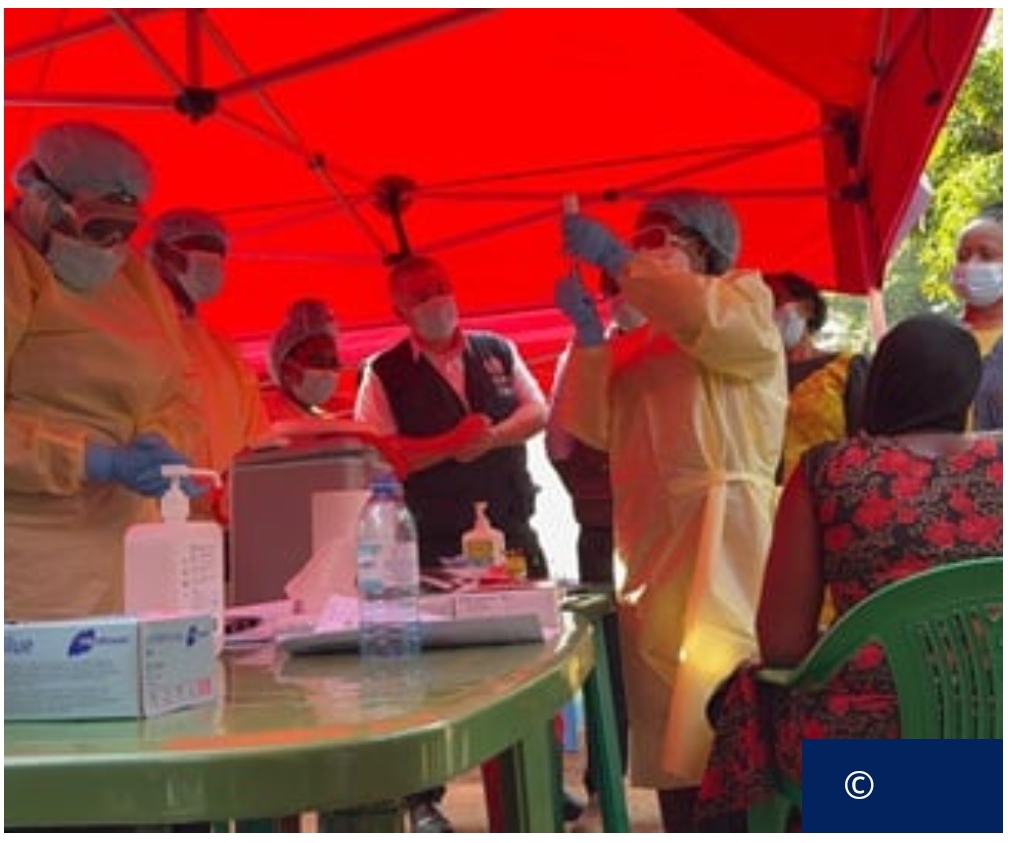Uganda Launches Groundbreaking Clinical Trial for Ebola Vaccine, Set to Combat Sudan Virus Strain.
KAMPALA, UGANDA:
In a pioneering effort to combat Ebola, Uganda has officially launched the first-ever clinical trial to assess the efficacy of a vaccine against the Sudan strain of the deadly virus. This trial, a collaboration between Uganda’s Ministry of Health, the World Health Organization (WHO), and numerous partners, marks a significant milestone in the global fight against Ebola and the speed at which vaccine trials can be executed in emergency situations.
Unprecedented in both its urgency and scope, the randomized clinical trial aims to evaluate the vaccine’s effectiveness during an ongoing outbreak, making it the first of its kind. The trial was initiated just four days after the outbreak of the Sudan virus was confirmed on January 30. Thanks to swift and thorough preparation, principal investigators from Makerere University and the Uganda Virus Research Institute (UVRI), with backing from WHO and other partners, were able to launch the trial with remarkable efficiency.
“This is a critical achievement towards better pandemic preparedness, and saving lives when outbreaks occur,” said Dr. Tedros Adhanom Ghebreyesus, WHO’s Director-General. He praised the tireless work of Ugandan health workers, local communities, and researchers who made this breakthrough possible. “This massive achievement would simply not be possible without them,” he added.
The candidate vaccine, provided by IAVI (International AIDS Vaccine Initiative), underwent prior trials for safety and immunogenicity. WHO, along with the Coalition for Epidemic Preparedness Innovations (CEPI), Canada’s International Development Research Centre (IDRC), and the European Commission’s Health Emergency Preparedness and Response Authority (HERA), financially supported the trial, with additional backing from the Africa Centres for Disease Control and Prevention (Africa CDC). This collective effort highlights a unified global response to the urgent threat posed by Ebola Sudan virus disease.
The trial was officially launched in Kampala, where Uganda’s Minister of Health led the ceremony. WHO’s Health Emergencies Programme Executive Director, Dr. Mike Ryan, and WHO’s Uganda Representative, Dr. Kasonde Mwinga, were also present at the event.
The trial’s primary focus is on a vaccine developed to combat the Sudan strain of Ebola, for which no licensed vaccine currently exists. While vaccines for the Zaire strain of Ebola have been developed, this trial aims to fill the gap for the Sudan virus. If successful, the vaccine could play a pivotal role in controlling the current outbreak and set the foundation for future vaccine licensure.
The trial will utilize a “vaccination ring” strategy, starting with contacts and contacts of contacts of the first confirmed case. Approximately 40 individuals within the first vaccination ring will be the initial recipients of the vaccine. Uganda’s research teams have undergone extensive training in good clinical practice and have received refresher courses to ensure the trial is conducted in full compliance with national and international standards.
The effort follows lessons learned from the 2022 Sudan strain outbreak in Uganda, where a randomized vaccine protocol was developed, preparing teams for trials during active outbreaks. This proactive planning has played a key role in the trial’s rapid deployment.
While there are promising candidates in the pipeline for Ebola vaccines and treatments, current medical countermeasures are limited to the Zaire strain, leaving the Sudan strain without an effective intervention. The WHO’s independent vaccine prioritization working group recommended the trial vaccine, which, if proven effective, could greatly enhance Ebola preparedness and response in future outbreaks.
As Uganda leads this critical trial, the global health community stands united in the race against time to control one of the world’s deadliest diseases. With the support of local and international partners, the success of this trial could be a game-changer in the fight against Ebola Sudan virus disease.



